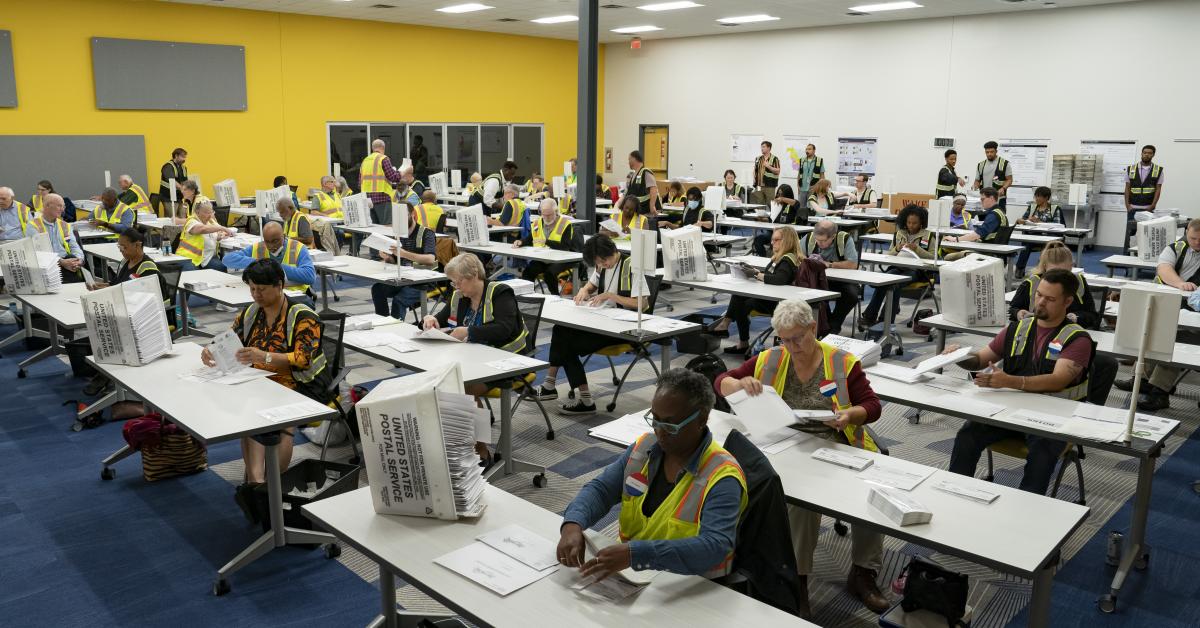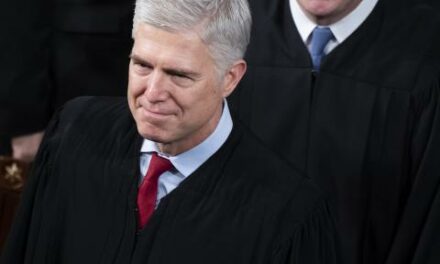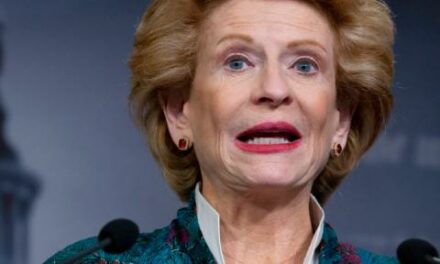We support our Publishers and Content Creators. You can view this story on their website by CLICKING HERE.

A Michigan election integrity group is warning about the lack of security for overseas ballots, recommending reforms both federally and statewide.
Republicans and election integrity proponents raised concerns regarding ballots cast by U.S. citizens living overseas ahead of the presidential election, with some even taking the issue to the courts. Following the election, Michigan Fair Elections Institute (MFEI) released a report regarding issues with overseas ballots, both on the federal and state levels, and is looking forward to legislators resolving these issues.
Military and overseas voters are allowed to vote from outside the U.S. due to the federal Uniformed and Overseas Citizens Absentee Voting Act (UOCAVA). To apply for a UOCAVA ballot, a voter must provide a Social Security number and either a state-issued driver’s license or identification number, which are used to verify the voter’s identity.
In August, the Democratic National Committee announced that it was investing in “Democrats Abroad” for the first time in a presidential election cycle. There are about 9 million Americans abroad, about 8% of whom are registered voters from the 2020 election. An estimated 6.5 million Americans living abroad are eligible to vote, according to Democrats Abroad.
In September, Trump raised concerns over UOCAVA voting. “The Democrats are talking about how they’re working so hard to get millions of votes from Americans living overseas. Actually, they are getting ready to CHEAT! They are going to use UOCAVA to get ballots, a program that emails ballots overseas without any citizenship check or verification of identity, whatsoever. (Foreign interference?),” Trump posted on Truth Social.
Ahead of the November election, UOCAVA vulnerabilities led to a lawsuit in the battleground state of Pennsylvania.
Five Republican congressmen filed a lawsuit against the Pennsylvania secretary of the commonwealth in September over allegedly lax requirements for military and overseas voters. The lawsuit was ultimately dismissed before the general election for being filed too late and because the plaintiffs lacked standing.
Pennsylvania is not the only state with issues regarding UOCAVA voting.
MFEI, a Michigan election integrity group, released a report on Tuesday that covers issues with UOCAVA voting both federally and on the state level.
The Michigan group reported four points of system failure on the federal level regarding UOCAVA ballots:
1. UOCAVA’s original legislative aim has been diluted, grown overly broad, and become ambiguous. UOCAVA errs in treating active military service members and overseas civilians in the same way.
2. Current federal eligibility requirements are lacking.
3. UOCAVA registration applications lack critical points for information verification.
4. Current wording of FPCA allows for unvetted overseas UOCAVA registrants to be placed on the voter rolls and remain there after their UOCAVA designation expires in 12 months.
Under the first point of system failure, the report notes how the UOCAVA of 1986 and the 2010 amendments have made the law ambiguous, and as a result, “Instead of enabling active service members and federal employees serving their country overseas to cast their ballots, UOCAVA now runs the very real risk of diluting their votes with ballots from ineligible voters, unverified registrants, and even non-citizens.”
Regarding federal eligibility requirements in the second point, the report reads, “As the law currently reads, no identification or proof of citizenship is required.
“The [Election Assistance Commission], it appears, wrongly assumes that each state will enforce its own checklist of eligibility requirements. It mistakenly thinks states will confirm their prerequisite conditions before registering a UOCAVA applicant to vote or sending the registrant an absentee ballot. This is not the case. Closely contested swing states including Michigan, Pennsylvania, Wisconsin, and others accept online UOCAVA post card registration applications with little to no further voter identity verification.”
The report also notes in the third point of system failure that both the Federal Post Card Application (FPCA) and the Federal Write-in Absentee Ballot, which overseas voters use to cast ballots, do not “require applicants to verify their identities.
“They fail to verify citizenship. They even fail to require applicants to prove residency in the state in which they are registering to vote,” the report reads.
The final point explains that while UOCAVA requires registrants to resubmit their UOCAVA applications after every 12 months to maintain their status, “it appears that if these potentially unvetted registrants do not re-apply for UOCAVA status, they remain on the state’s voter rolls.
“While these registrants are no longer considered overseas UOCAVA, their registration status appears to remain active and their address of record becomes the U.S. address they cited in their registration application,” the report continues.
The issue with this is that “Large quantities of absentee ballots could potentially be mailed or emailed to locations where the unverified, former UOCAVA registrant no longer resides (and perhaps never resided),” according to the report. “These dubious registrations could determine the outcome of elections.”
The report includes four recommended reforms to UOCAVA federal policy.
The first reform is “Scale back UOCAVA eligibility requirements.” It includes ID and citizenship requirements; preventing non-military overseas Americans from voting or registering to vote UOCAVA electronically; and allowing “[p]ermanent (retirement) overseas residents” to “vote in federal elections only.”
The second reform is “Separate UOCAVA into two parts: active military and civilian.” This reform includes more stringent rules for non-military overseas voters, requiring them to have first registered “in person at their last place of residency before leaving the country.”
The third reform is “Verify identity, citizenship, and residency before registering overseas civilians or issuing them a ballot.” It requires UOCAVA applicants to prove their U.S. citizenship and residency of the state in which they are registering to vote. Also, the reform includes revoking President Biden’s Executive Order 14019 – called “Bidenbucks” by critics – because it “forces government workers to register voters.”
The last reform is “Remove the option to automatically register and receive ballots for future elections.” The reform also notes that anyone filing “for a permanent change of address with the U.S. Postal Service via the National Change of Address … should automatically be able to cancel his or her voter registration in their moved-from state and indicate if he or she has an interest in applying for registration in their moved-to state.”
Patrice Johnson, chair of MFEI, told Just the News on Tuesday regarding the report, “We’re hoping state and federal legislators consider the reforms in the report and work to pass laws to implement them and ensure the security of UOCAVA ballots. We are sending the report to legislators in Michigan and in Congress for them to consider the issue.”
The report also includes five points of system failure in Michigan for UOCAVA voting:
1. Current SOS directives tell clerks to accord overseas civilians “protected status” and register UOCAVA applicants without checking identity or eligibility.
2. Current SOS directives tell clerks to send UOCAVA registrants an absentee ballot without verifying identity or eligibility.
3. Current Michigan law allows for unverified overseas voters to become active non-UOCAVA voters and permanent absentee voters, receiving absentee ballots for up to 10 years.
4. UOCAVA allows registrants to receive ballots from states in which they never resided.
5. No definitive citizenship match is required for clerks to register UOCAVA applicants and count their ballots.
The recommended reforms for Michigan are similar to those for UOCAVA federal policy but include an additional reform on cleaning up the state’s voter rolls.

 Conservative
Conservative  Search
Search Trending
Trending Current News
Current News 





